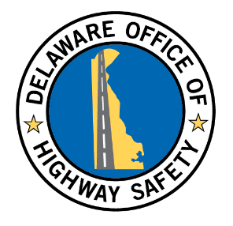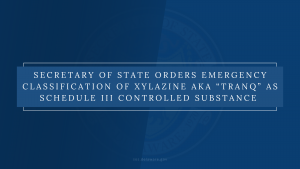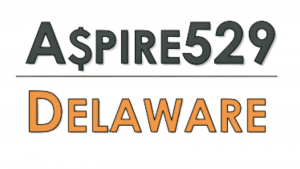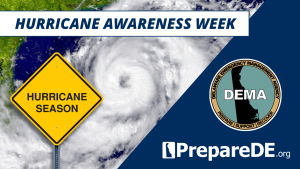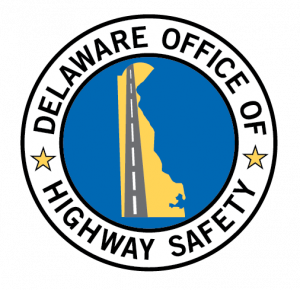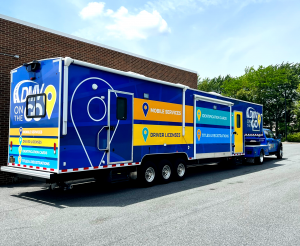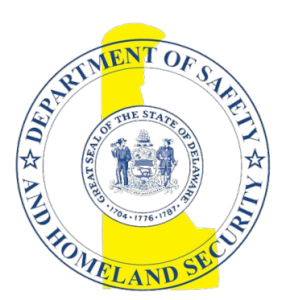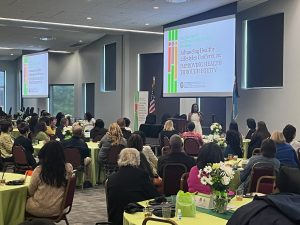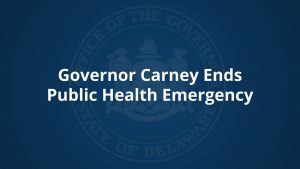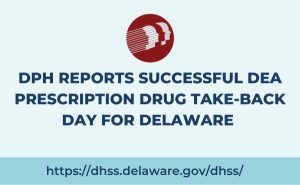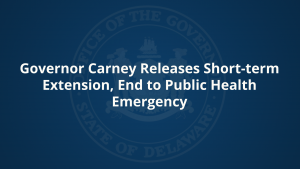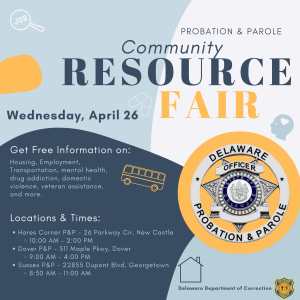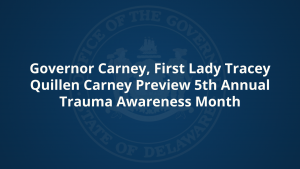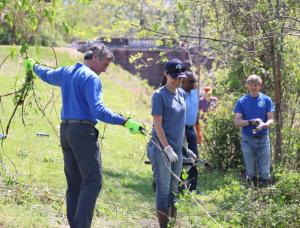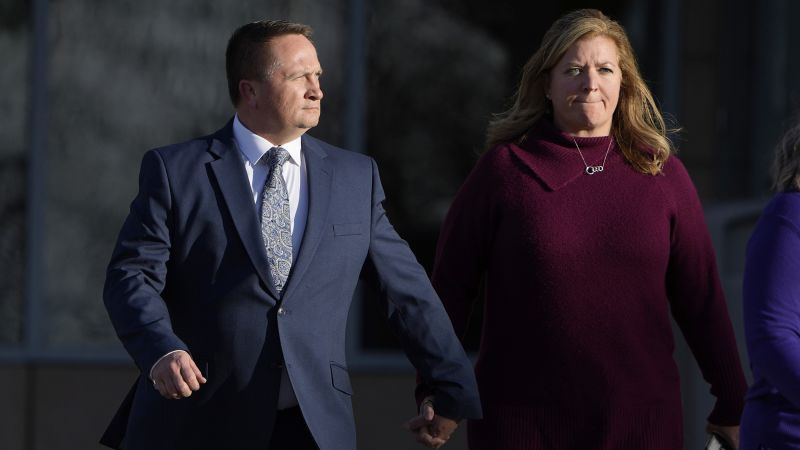Delaware
Delaware Officials Provide Latest Updates, Underscore Urgency Surrounding Youth, Opioids, and Prevention Programs – State of Delaware News
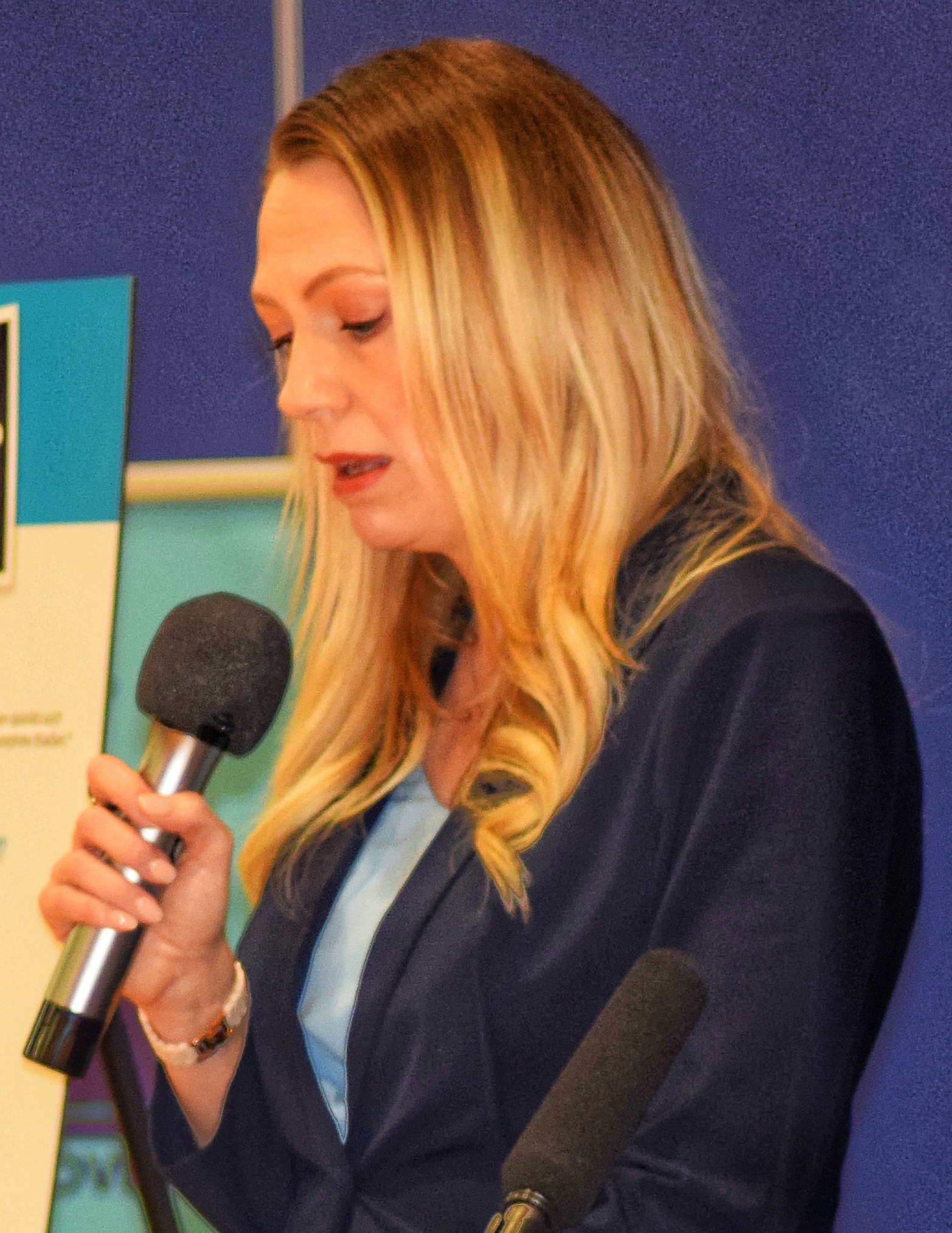

MILFORD (June 6, 2023) – Lieutenant Governor Bethany Hall-Long and leaders from the Department of Health and Social Services (DHSS), Department of Education (DOE), and Department of Services for Children, Youth and their Families (DSCYF) led a community response briefing on Friday to provide the latest information regarding the state’s efforts to address substance use among Delaware youth, and to highlight innovative educational and outreach programs taking place across the state in coordination with schools and community partners.
Organized by the DHSS Division of Substance Abuse and Mental Health, these quarterly briefings aim to inform the public about the State’s ongoing work to reduce overdoses and respond to the opioid epidemic.
“As a mom, nurse and professor, I want our kids to be on the best possible path. That path begins with prevention and engagement. I will continue to work with our state agencies, community advocates and partners to deliver a behavioral health system that works for everyone – that’s what our kids deserve,” said Delaware Lt. Governor Bethany Hall-Long and Chair of the Behavioral Health Consortium. “Today, we examined the numbers around youth substance use and prevention, and it’s so important to back up that data with action. A strong, healthy Delaware means everyone has the chance to be successful and follow their dreams and that starts with our kids.”
DOE Secretary Mark Holodick and DSCYF Secretary Josette D. Manning opened the event and underscored the need to assure the safety of Delaware youth.
“Our schools in Delaware have a unique opportunity to provide education to students and families about avoiding substance abuse. Students spend an average of 1,000 hours each year in school, so we know that schools need to be an active partner in helping our kids and their families navigate the changing landscape of substance abuse,” Secretary of Education Mark Holodick said.
Dr. Rochelle Brittingham, Associate Scientist for the Center for Drug & Health Studies at the University of Delaware shared data from the most recent Youth Risk Behavior Survey (YRBS). While self-reported drug use among school-aged individuals has decreased in Delaware, attitudes about drug use are becoming more casual, which raises concerns, noted Dr. Brittingham. Only 56% of high schoolers think using prescription drugs without a prescription poses a great risk, while 37% believe it poses slight or moderate risk, and 7% believe it poses no risk at all, according to the YRBS in 2021.
Data from the Centers for Disease Control and Prevention show that although middle school and high school aged youth in the U.S. reported using fewer illicit drugs in 2020, there was a 94% increase in overdose deaths from 2019 to 2020 among this age group and a 20% increase from 2020 to 2021.
DSCYF Secretary Manning pointed to the CDC statistic that shows median monthly overdose deaths among individuals aged 10 to 19 years old increased 109% from 2019 to 2021.
“The data is shocking,” DSCYF Secretary Josette D. Manning said. “We must take action to help our children. The best way for parents to safeguard their children is to educate themselves and to talk openly with their children about drugs and alcohol, long before they start experimenting with it.”
Despite reporting less illicit drug use among this population overall, the CDC points to the potency of the drugs as a major contributing factor to the increase in overdose deaths among youth. Approximately 90% of overdose deaths involved opioids, and 83.9% involved illicit manufactured fentanyl.
The Division of Public Health’s Chief Physician Dr. Michael Coletta underscored the need for the community to support adolescents and teens by implementing programs to prevent adverse childhood experiences. The Division of Public Health created the #MyReasonWhyDE social media campaign to provide teens a platform to share their reason to remain drug free and embrace a resilient mind frame.
Sabra Collins, education associate for physical education, health and wellness for the Delaware Department of Education provided updates regarding new regulations supporting substance use prevention education (referred to as Regulation 551), news about mental health literacy, and information on drug and alcohol training courses provided by the agency.
DSAMH Director Joanna Champney highlighted the Talk2KidsAboutDrugs toolkit. The toolkit can help inform parents, caregivers and educators about substance use and addiction risks among teens. The toolkit, available at HelpisHereDE.com, contains resources such as facts sheets, educational materials, and social media messaging that schools can implement to support drug and alcohol prevention. Parents and educators can find the full toolkit at www.helpisherede.com/talk-2-kids-about-drugs.
Tom Morrison, Family Services Program Administrator with DSCYF’s Division of Prevention and Behavioral Health Services advised parents to make their home as safe as possible by securing medication, safely disposing of medications, and to consider obtaining Narcan and training on when and how to use it if there are opioids or opioid users in the child’s life.
Peggy Geisler, Executive Director of the Sussex County Health Coalition, shared how her organization serves as a catalyst for state agencies, community-based organizations and health care providers to support a wide breadth of initiatives, programs, resourcing, and education for community-based issues concerning social determinants of health. The coalition’s campaign Delaware Goes Purple reaches 100,000 Delawareans and encourages them to stand up, to erase the stigma around addiction and support people who need it most.
“We know that young people’s brains are still developing well into their early 20’s, and education alone is not enough during years when impulse control is still developing. So providing meaningful activities for teens is crucial. The more we can build social safety nets around our teens, where they connect with caring adults and learn positive skills, the more we lower the risk of teens turning to unhealthy behaviors,” DHSS Secretary Molly Magarik said.
To help address behavioral health needs of Delawareans, DHSS has several ways for individuals or their family members to connect:
• Call the 24/7 Delaware Hope Line at 1-833-9-HOPEDE or 1-833-946-7333 – a single point of contact in which callers can connect to a variety of resources and information, including support from clinicians and peer specialists plus crisis assistance.
• Stop by one of DHSS’ Bridge Clinics for an in-person assessment.
• Visit TreatmentConnection.com to find out which treatment providers are located near you.
• Visit HelpIsHereDE.com, DHSS’ one-stop website where Delawareans can search for treatment services and resources in Delaware or nearby states.
• Call 988 if the individual is in crisis and needs immediate support.
• Call 911 if someone has overdosed and needs emergency medical attention.
• Learn where to find Narcan training, get the medication through the mail, and download the OpiRescueDE App here.
Delaware Health and Social Services is committed to improving the quality of the lives of Delaware’s citizens by promoting health and well-being, fostering self-sufficiency, and protecting vulnerable populations.
Related Topics: Delaware Department of Health and Social Services, Division of Substance Abuse and Mental Health, DSAMH, overdose response, Substance Abuse
Keep up to date by receiving a daily digest email, around noon, of current news release posts from state agencies on news.delaware.gov.
Here you can subscribe to future news updates.

MILFORD (June 6, 2023) – Lieutenant Governor Bethany Hall-Long and leaders from the Department of Health and Social Services (DHSS), Department of Education (DOE), and Department of Services for Children, Youth and their Families (DSCYF) led a community response briefing on Friday to provide the latest information regarding the state’s efforts to address substance use among Delaware youth, and to highlight innovative educational and outreach programs taking place across the state in coordination with schools and community partners.
Organized by the DHSS Division of Substance Abuse and Mental Health, these quarterly briefings aim to inform the public about the State’s ongoing work to reduce overdoses and respond to the opioid epidemic.
“As a mom, nurse and professor, I want our kids to be on the best possible path. That path begins with prevention and engagement. I will continue to work with our state agencies, community advocates and partners to deliver a behavioral health system that works for everyone – that’s what our kids deserve,” said Delaware Lt. Governor Bethany Hall-Long and Chair of the Behavioral Health Consortium. “Today, we examined the numbers around youth substance use and prevention, and it’s so important to back up that data with action. A strong, healthy Delaware means everyone has the chance to be successful and follow their dreams and that starts with our kids.”
DOE Secretary Mark Holodick and DSCYF Secretary Josette D. Manning opened the event and underscored the need to assure the safety of Delaware youth.
“Our schools in Delaware have a unique opportunity to provide education to students and families about avoiding substance abuse. Students spend an average of 1,000 hours each year in school, so we know that schools need to be an active partner in helping our kids and their families navigate the changing landscape of substance abuse,” Secretary of Education Mark Holodick said.
Dr. Rochelle Brittingham, Associate Scientist for the Center for Drug & Health Studies at the University of Delaware shared data from the most recent Youth Risk Behavior Survey (YRBS). While self-reported drug use among school-aged individuals has decreased in Delaware, attitudes about drug use are becoming more casual, which raises concerns, noted Dr. Brittingham. Only 56% of high schoolers think using prescription drugs without a prescription poses a great risk, while 37% believe it poses slight or moderate risk, and 7% believe it poses no risk at all, according to the YRBS in 2021.
Data from the Centers for Disease Control and Prevention show that although middle school and high school aged youth in the U.S. reported using fewer illicit drugs in 2020, there was a 94% increase in overdose deaths from 2019 to 2020 among this age group and a 20% increase from 2020 to 2021.
DSCYF Secretary Manning pointed to the CDC statistic that shows median monthly overdose deaths among individuals aged 10 to 19 years old increased 109% from 2019 to 2021.
“The data is shocking,” DSCYF Secretary Josette D. Manning said. “We must take action to help our children. The best way for parents to safeguard their children is to educate themselves and to talk openly with their children about drugs and alcohol, long before they start experimenting with it.”
Despite reporting less illicit drug use among this population overall, the CDC points to the potency of the drugs as a major contributing factor to the increase in overdose deaths among youth. Approximately 90% of overdose deaths involved opioids, and 83.9% involved illicit manufactured fentanyl.
The Division of Public Health’s Chief Physician Dr. Michael Coletta underscored the need for the community to support adolescents and teens by implementing programs to prevent adverse childhood experiences. The Division of Public Health created the #MyReasonWhyDE social media campaign to provide teens a platform to share their reason to remain drug free and embrace a resilient mind frame.
Sabra Collins, education associate for physical education, health and wellness for the Delaware Department of Education provided updates regarding new regulations supporting substance use prevention education (referred to as Regulation 551), news about mental health literacy, and information on drug and alcohol training courses provided by the agency.
DSAMH Director Joanna Champney highlighted the Talk2KidsAboutDrugs toolkit. The toolkit can help inform parents, caregivers and educators about substance use and addiction risks among teens. The toolkit, available at HelpisHereDE.com, contains resources such as facts sheets, educational materials, and social media messaging that schools can implement to support drug and alcohol prevention. Parents and educators can find the full toolkit at www.helpisherede.com/talk-2-kids-about-drugs.
Tom Morrison, Family Services Program Administrator with DSCYF’s Division of Prevention and Behavioral Health Services advised parents to make their home as safe as possible by securing medication, safely disposing of medications, and to consider obtaining Narcan and training on when and how to use it if there are opioids or opioid users in the child’s life.
Peggy Geisler, Executive Director of the Sussex County Health Coalition, shared how her organization serves as a catalyst for state agencies, community-based organizations and health care providers to support a wide breadth of initiatives, programs, resourcing, and education for community-based issues concerning social determinants of health. The coalition’s campaign Delaware Goes Purple reaches 100,000 Delawareans and encourages them to stand up, to erase the stigma around addiction and support people who need it most.
“We know that young people’s brains are still developing well into their early 20’s, and education alone is not enough during years when impulse control is still developing. So providing meaningful activities for teens is crucial. The more we can build social safety nets around our teens, where they connect with caring adults and learn positive skills, the more we lower the risk of teens turning to unhealthy behaviors,” DHSS Secretary Molly Magarik said.
To help address behavioral health needs of Delawareans, DHSS has several ways for individuals or their family members to connect:
• Call the 24/7 Delaware Hope Line at 1-833-9-HOPEDE or 1-833-946-7333 – a single point of contact in which callers can connect to a variety of resources and information, including support from clinicians and peer specialists plus crisis assistance.
• Stop by one of DHSS’ Bridge Clinics for an in-person assessment.
• Visit TreatmentConnection.com to find out which treatment providers are located near you.
• Visit HelpIsHereDE.com, DHSS’ one-stop website where Delawareans can search for treatment services and resources in Delaware or nearby states.
• Call 988 if the individual is in crisis and needs immediate support.
• Call 911 if someone has overdosed and needs emergency medical attention.
• Learn where to find Narcan training, get the medication through the mail, and download the OpiRescueDE App here.
Delaware Health and Social Services is committed to improving the quality of the lives of Delaware’s citizens by promoting health and well-being, fostering self-sufficiency, and protecting vulnerable populations.
Related Topics: Delaware Department of Health and Social Services, Division of Substance Abuse and Mental Health, DSAMH, overdose response, Substance Abuse
Keep up to date by receiving a daily digest email, around noon, of current news release posts from state agencies on news.delaware.gov.
Here you can subscribe to future news updates.

Delaware
Troopers Arrest Smyrna Man for Aggravated Menacing – Delaware State Police – State of Delaware

Delaware State Police arrested 35-year-old Dennis Piasio of Smyrna, Delaware, for aggravated menacing and other charges yesterday.
On April 25, 2024, at approximately 12:16 p.m., troopers responded to an aggravated menacing on Arthursville Road near Main Street in Hartly. When troopers arrived, they learned that two men were driving northbound on Arthursville Road, leaving a construction site. A blue car was driving southbound in the northbound lane and stopped in front of the vehicle. The driver of the blue car, identified as Dennis Piasio, who the two men know, got out and opened the victims’ driver side door. He pushed the driver against the seat, grabbed the passenger and pointed a gun at him. The driver was able to push Piasio away from the vehicle and leave the area. The victims were not hurt.
Piasio turned himself in at Troop 3, where he was charged with crimes listed below, arraigned by Justice of the Peace Court 2, and released after posting a $74,000 secured bond.
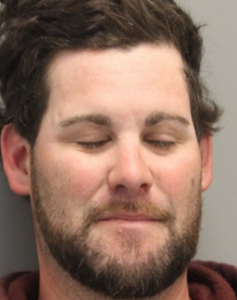
- Possession of a Deadly Weapon During the Commission of a Felony (Felony)
- Aggravated Menacing (Felony) – 2 counts
- Reckless Endangering 2nd Degree (Felony) – 2 counts
View All News Posts
Delaware
Update: Frost advisory affecting Delaware and Philadelphia counties until Friday morning

The National Weather Service issued an updated frost advisory at 12:56 a.m. on Friday valid for Friday between 2 a.m. and 9 a.m. for Delaware and Philadelphia counties.
The weather service adds, “Temperatures as low as 33 degrees will result in frost formation.”
“Frost could kill sensitive outdoor vegetation if left uncovered,” comments the weather service. “Take steps now to protect tender plants from the cold.”
What to do if there is a frost advisory
Frost advisories are issued from May to October (but can be extended if necessary) when temperatures, winds, and sky cover are favorable for frost development. This is most likely to happen when the temperature is 36 degrees or less. In some cases, the frost is severe enough to end the growing season and is then referred to as a ‘killing frost’.
According to the weather service, if a frost advisory is issued for your area, cover up sensitive plants before the sun sets so that it can help retain heat near the plants, or move the plants indoors for the night, if possible.
Advance Local Weather Alerts is a service provided by United Robots, which uses machine learning to compile the latest data from the National Weather Service.
Delaware
Family of Camay Mitchell De Silva, Delaware State shooting victim, speaks out:
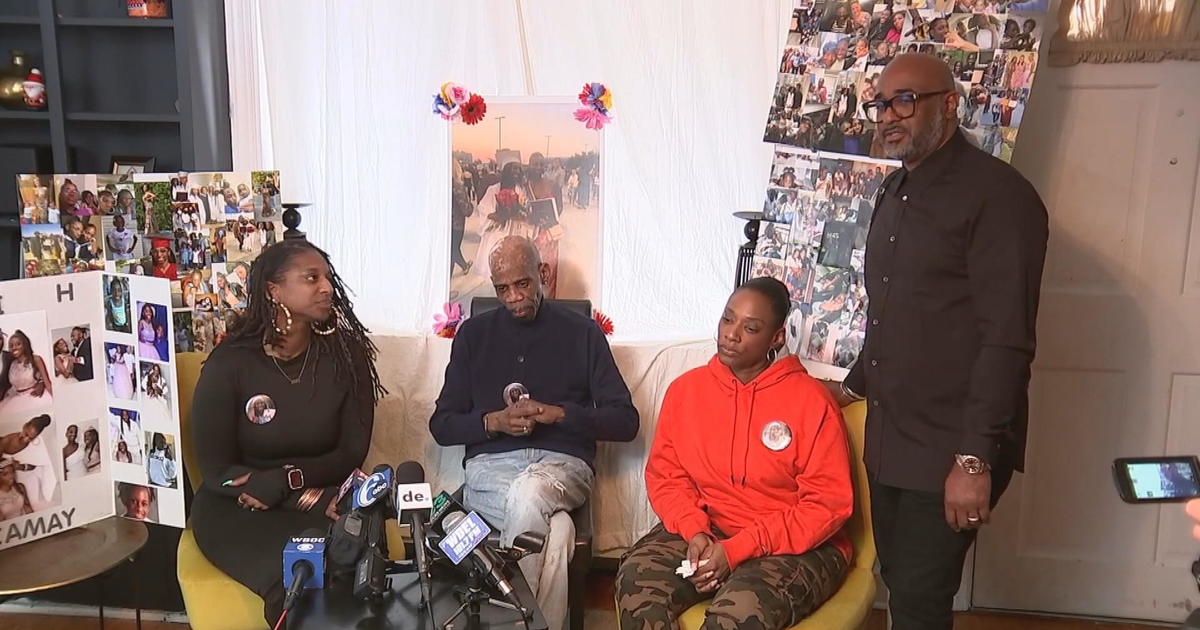
WILMINGTON, Del. (CBS) – Four days after the unthinkable happened, the family of Camay Mitchell De Silva came together to speak out.
The 18-year-old Concord High School graduate died after she was shot on the campus of Delaware State University early Sunday morning.
“In 18 years of her life, she gave us a lot,” her grandfather Martin De Silva said.
Her family said she was a light in this world dimmed much too soon.
“We want to see her come through that door. Reality is that she’s not,” Martin De Silva said.
“Camay was my first born and honestly my best friend,” her mother Shanelle De Silva said.
Diligent, funny and at times feisty – Camay Mitchell De Silva’s mother, grandfather and aunt are holding tight onto memories of the person they affectionately called “May May.”
“We also called her ‘Auntie May’ because she took care of all the little ones,” her aunt Charlotte De Silva Davis added. Shanelle De Silva said she called her daughter, “Lady Bug.”
Sitting in the living room of their Wilmington home, the family was still trying to process what happened over the weekend. Together they shared pieces of Camay Mitchell De Silva’s life, their hope for justice and how they plan on carrying on her legacy.
“Camay never ceased to impress me. Like my family said, reading young, walking, talking, just everything she did, she did it early and maybe that was just a way to know she wasn’t going to be here as long as we wanted her to be here,” Shanelle De Silva said about her daughter.
Camay Mitchell De Silva’s family said she was at DSU visiting her best friend when the shooting happened. The plan for her was to enroll at the school this fall with dreams of one day working in the cybersecurity world.
“I wish she would’ve made it that day. She could’ve come home and tell me another one of her stories,” Charlotte De Silva Davis said through tears.
Since the beginning of the investigation, Dover police said the 18-year-old was an innocent bystander. On Thursday, the department said it is “still making good progress” in the investigation.
Her loved ones are praying justice comes soon.
“You just took someone that had nothing to do with what you had going on, so anybody who knows anything, the person who did this, just please come forward,” Shanelle De Silva said.
Standing alongside the family was Bishop Jeffery Broughton Sr., who said he is spiritual support for the family.
“This is a seat that no one wants to sit in. To see the pain, to see the sorrow,” Broughton said. “Let’s stop the violence. Let’s not cause another Camay to be in another family, but let’s all stand up, let’s say something and if you know something, please reach out to the authorities and let them know.”
Her mother said Camay was a cheerleader who excelled in school. The family also remembers her as a “techie,” often fixing whatever was broken in the house, such as a remote or a computer.
“You’d think she made the device,” her grandfather said.
Family was most important to Camay, though. It was part of the reason she came back home after briefly attending Morgan State University in Baltimore.
The family sat down for dinner together every Sunday. They just didn’t know her last one would be so soon.
“She came in the kitchen and she said, ‘Bye Nini, I love you!’ and she kissed me on the cheek and it was a different goodbye,” Charlotte De Silva Davis said. That moment was on April 14 – a week before her death.
It was easy to see just how loved Camay Mitchell De Silva was. On Wednesday night, at least 100 people came together for a vigil. Together they released balloons into the area and set up a candle memorial spelling out her name.
Plans are still coming together for Camay Mitchell De Silva’s services. Her family said it will be New Jersey because she was born there and spent part of her childhood there. They said it was a place she simply loved.
“This family, together we’re going to build something that will let the world know her or care to know about her because we want her name to live on,” Martin De Silva said. He later added, “We’re going to make sure that name becomes endless.”
-

 World1 week ago
World1 week agoIf not Ursula, then who? Seven in the wings for Commission top job
-

 News1 week ago
News1 week agoGOP senators demand full trial in Mayorkas impeachment
-

 Movie Reviews1 week ago
Movie Reviews1 week agoMovie Review: The American Society of Magical Negroes
-

 Movie Reviews1 week ago
Movie Reviews1 week agoFilm Review: Season of Terror (1969) by Koji Wakamatsu
-

 World1 week ago
World1 week agoCroatians vote in election pitting the PM against the country’s president
-

 World1 week ago
World1 week agoAnd the LUX Audience Award goes to… 'The Teachers' Lounge'
-

 World1 week ago
World1 week ago'You are a criminal!' Heckler blasts von der Leyen's stance on Israel
-

 Politics1 week ago
Politics1 week agoTrump trial: Jury selection to resume in New York City for 3rd day in former president's trial
